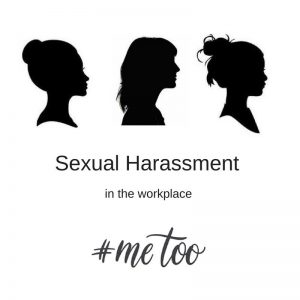Former eating disorder sufferer discusses their history
November 14, 2017
A thin girl with long blond hair, crying over the toilet as she throws up her last meal, wishing she hadn’t eaten it. The same girl, gently refusing the ice cream or cake offered to her. She has become the face of eating disorders. In reality, these disorders can be a much uglier scene, and can affect people suspected the least.
“I was bulimic when I was 13,” Anonymous said. “It was a lot of friend issues, I think. I was in a friend group that made jokes about eating disorders. it made me really self concious about my body. Some other drama happened within my friend group and I ended up finding new friends. My new friends didn’t make jokes about it, they were more supporting and loving. That was part of the reason I did it, I didn’t feel like I had control of my life. I had friends that were unsupportive and they were constantly belittling me. When I found new friends I was happier, and I didn’t feel like I had to do that anymore.”
The Anxiety and Depression Association of America estimates that two thirds of those battling an eating disorder also struggle with anxiety. Similarly, close to 75 percent fight depression.
“I was depressed during the time I was doing that,” Anonymous said. “I was not only depressed, but I had really bad anxiety about myself. There were times where I hit really low points in my life, and that was definitely one of them. It was a yo-yo effect, I went up and down. Sometimes I would do it for two weeks then stop, then I would try to get better and I would just do it again. I was constantly depressed and down about myself. I was never confident in my body. Even to this day I wear baggy clothes.”
While friends or family concerned about someone’s eating habits should try helping that person, Eating Disorder Hope advises getting a professional involved when handling eating disorders. Giving personal advice may not be as helpful as it is intended to be, and oftentimes the struggler will only try to hide their disorder more.
“It’s usually someone who feels that their life is very out of control,” counselor Vicki Russel said. “This is one area that they can control. It doesn’t matter what other people say to them, they’re going to do it. It’s a very tough issue to get at. Like alcoholism, it doesn’t matter how many people say ‘stop drinking, you have a problem.’ It doesn’t translate the same, they just get more sneaky about it.”
It can be helpful to evaluate the underlying cause of an eating disorder. Judgemental friends are behind low self-esteem, or a need to impress others are often the culprit. Eating disorders tend to be side effects of other issues. Finding the root of the problem can, in many cases, help lead to recovery.
“The one thing that helped me was looking at what caused it,” Anonymous said. “My friends were a big part of it, and self confidence was another. It doesn’t help someone with an eating disorder when someone says ‘don’t do it.’ Telling someone not to do it is never going to help them. I had people tell me that, and that’s not advice. I had to go through it to get out of it. Part of it is taking tiny steps. Maybe you start eating breakfast, or you don’t throw up breakfast. Then you do that for a little bit, and I think it’s a stepping stone. You accomplish one thing then move on to the next. It’s going to be hard to break the cycle.”
Many of those affected by eating disorders keep it a secret for a long time before speaking up, and confiding in someone can help. The National Eating Disorders Association Information and Referral Helpline is 1-800-931-2237 for those who wish to remain anonymous. In addition, school counselors, friends, family or teachers can help guide those with eating disorders to a path of recuperation.
“I would usually refer them to someone who specializes in eating disorders,” Russel said. “U of M has an eating disorder clinic, and they are able to treat people as outpatients, intensive inpatient, partial hospitalization, inpatient and long term residential. They have all these levels. This isn’t usually something that someone self-identifies. This is usually something where other people are concerned. The person who has the eating disorder doesn’t typically think it’s a problem.”
With roughly 15 percent of Americans struggling with an eating disorder, there are many roads to help for anyone who is dealing with their effects. It can be equally important for those around the sufferer to seek help. Talk to someone that you trust if you have concerns about the eating habits of yourself or others.













